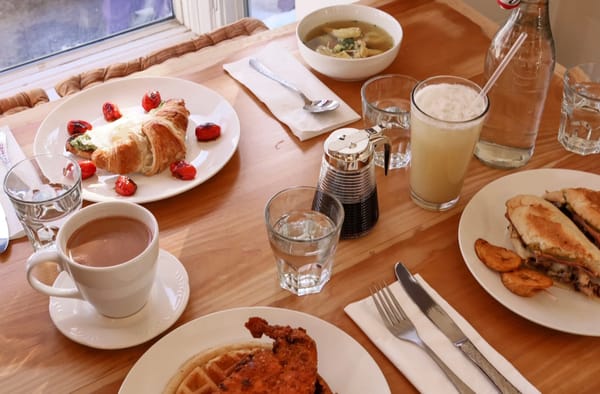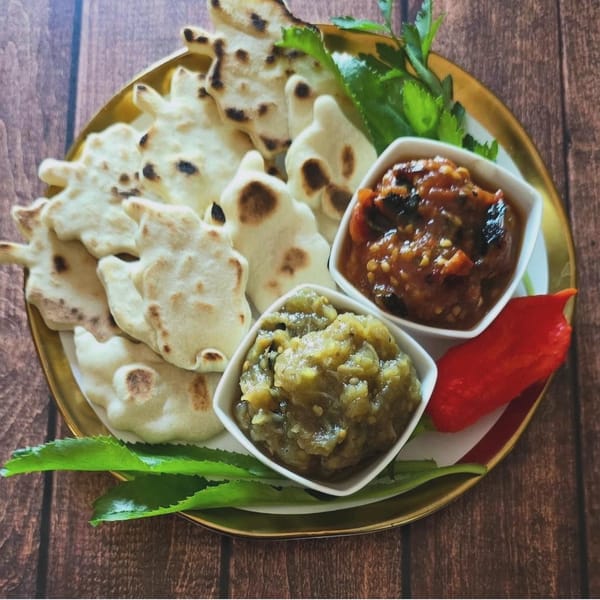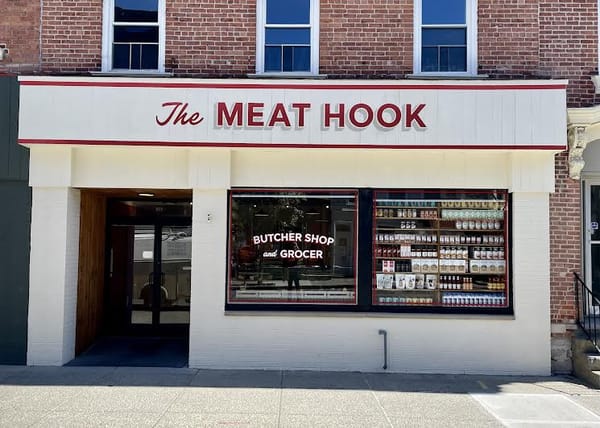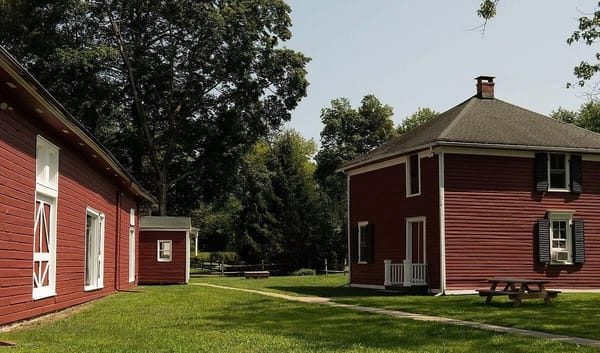
Just before the holiday break, Peter Davies of Turkana farms in Germantown wrote about eating heritage breeds in order to save them (to refresh your memory, please scroll down). Enid Futterman, editor of the periodical, Our Town in Claverack, NY, wrote to Peter and his partner Mark Scherzer to express her sympathy with that viewpoint but to ask what they would say to someone who thinks that extinction of breeds is acceptable if the only alternative is raising them to kill and eat them? Mark admits the question is a tough one, the ultimate vegetarian’s challenge, and they’ve been debating the matter ever since. Here, some of their back and forth. They invite your responses, which they intend to excerpt in a future blog: Mark, the legal mind in the family, leads off: “To start with, we have to acknowledge that we don’t have an argument for preservation of these breeds that begins with the ‘natural order’ of things.” Peter immediately interjects:” The ‘natural order’ of the universe is not a pretty sight from any perspective. Our world is a great, heartless eating machine with everything feeding on everything else. Animals in the wild are not living in a state of grace, as we like to imagine, but usually hungry, tortured by parasites, and hunted by predators of all kinds. And they too die, usually very young, and experience a death that is often not pretty.” Mark, ignoring the interruption, and playing the Devil’s advocate, continues: “Saving farm livestock is not like saving the polar bear, which has been around in its natural environment for millennia and about which we care in part because we care about the environment of which it is a part. These domestic farm animal breeds are all creations of men, only a few hundred years old or less.” Peter interrupts: “Wait a minute. Breeding sheep, for instance. actually goes back to Neolithic times when early nomadic herders transformed the goat-like wild animal, Ovis Orientalis, into the woolly sheep we know today. In my native Wales, for instance, sheep have been herded since Roman times—that’s more than two thousand years.” Mark, uncharacteristically backs down: “Ok I grant you that. But some of these breeds are a lot more recent, and I don’t think many domesticated animals would be missed in an environmental sense if they disappeared. They may have particular characteristics of ecological value, including lower environmental impact because of how they are raised, but they are not linchpins of any ecosystem”. Peter politely contradicts: “That’s not entirely true. The ecosystems of some parts of Wales and Scotland, as well as Anatolia, three places I know well, would be very different without the presence of sheep. They would certainly be missed in an environmental sense if they disappeared.” Mark takes a different tack: “So we have some argument that these animals are an important element in the natural order. But the ones that are now so rare must have a pretty minimal role. Do we have any other justification for what we’re doing?” Peter authoritatively asserts: ‘Well, there is my argument that begins from the standpoint of Preservationism: What humans create, be it art, architecture, literature, or breeds of animals, is worth saving for aesthetic reasons, that is because these particular creations please us as when, for instance, we look at them or, more relevant to this argument, eat them. There are also the academic uses of these creations, demonstrating how one can develop particular traits through breeding, and utilitarian reasons, such as maintaining a diverse gene pool for the species of which they are a part. Mark begins an argument of his own: “I don’t know if Enid’s inquirer will accept those arguments, because the premise of the question is that an animal’s slaughter and its consumption as food is so horrible that those values cannot justify their fate. To me, the focus on that horror rests on a logical fallacy. The animal’s life is more than its final moments. A barnyard animal can live a rich and fulfilling life up until its death, especially compared with the fate of so many animals in the wild. And, though it may sound self-justifying, we believe we provide a wonderful, if brief life, to our domestic livestock. They have plentiful food and water, shelter as appropriate, experience a social life, and they get to act out the essence of their ‘animalness’. “In some respects, they have greater security and happiness than many humans who live in poverty, or face war or genocide. I would argue that if a horrible end were an argument for never existing, then that would justify allowing the “extinction” of many human populations as well, and I doubt the questioner would contemplate imposing such a fate on them. “So while I might concede that the life of domestic animals raised through industrial farming methods that reduce them to commodities is a life not worth living, I would not concede the same regarding animals raised on a small scale on a humane farm”. Peter interjects: “I think we are both agreed on that”. Mark, without missing a beat, continues: “But I think the final and best answer, because it meets the underlying premise of the question head on, is to admit that we don’t just eat these particular animals in order to save their breeds, but we also save their breeds in order to eat them.” Peter adds: There’s a nice symmetry in that. Mark continues: As you’ve already pointed out, our world operates on a cycle of predation. All animals must eat to live, and eating universally involves ingesting other organisms. Those organisms are primarily animals and plants. Plants, as was reported in the New York Times “Science Section” this week, may struggle mightily to stay alive and have (vegetarians please take note) at least parallel mechanisms to what we call consciousness” Peter interjects: “Now that you’ve made me aware of plant suffering, I may never bite into another radish”. Mark, swatting aside the levity, continues: “But in a very significant number of cases, a meal involves the eating of other animals. And since it is the “natural order”, it follows, it seems to me, that it is better to eat animals which have been allowed to live real lives as fellow creatures rather than eating beings which have been reduced to the status of commodities.” “I concede to vegetarians that they may have created a diet which fulfills them. I understand that swearing off meat may do away with the complexities of guilt we thinking carnivores sometimes face. Possibly vegetarians are actually, therefore, happier - that is, as long as they don’t think too hard about the vegetables they cut off at the knees and wrench from mother earth.” Peter interjects: “I no longer have the heart to eat another tormented turnip”. Mark continues undaunted: “I still don’t know if we’ve given a satisfactory answer to the question. My spiritual comfort with eating other creatures, as long as they’ve been well-treated, may not convince someone who distinguishes more religiously between plants (edible) and animals (not).” Peter, adds a final note of realism: It seems to me that letting all of the heritage breeds (or all domesticated farm animals) go extinct would only make sense if all of us carnivores had either gone extinct or been converted. But this universal vegetarian redemption is unlikely. Au contraire, look at the changing diets of India and China, where the populations are, for good or bad, quickly learning to “Mangez comme nous.”








